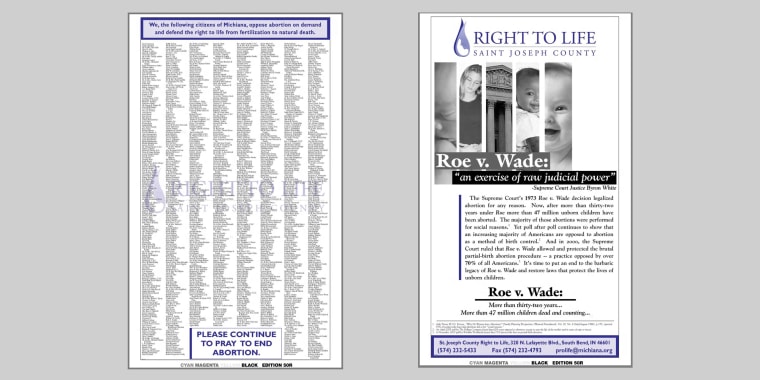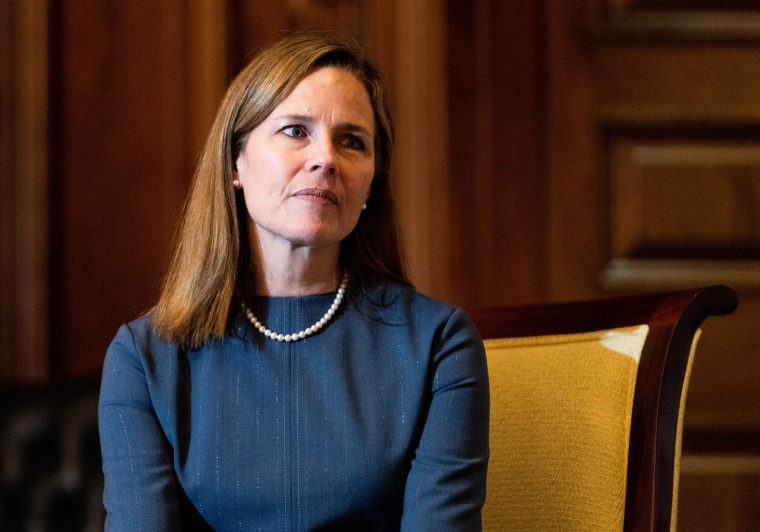WASHINGTON — President Donald Trump's Supreme Court nominee, Judge Amy Coney Barrett, failed to disclose her participation in a 2006 newspaper ad calling for Roe v. Wade to be overturned and ending its “barbaric legacy” when she submitted paperwork to the Senate Judiciary Committee.
Two Democratic committee aides confirmed to NBC News that the two-page ad published in the South Bend Tribune of Indiana, which included her name in a long list of those in support, was not disclosed in the Senate forms required of judicial nominees and maintained that it should have been. They said it should have been included in the response to a question in the forms asking for citations of “books, articles, reports, letters to the editor, editorial pieces or other published material you have written or edited.”
“The ad should have been included in Judge Barrett’s Senate Judiciary Questionnaire and was not,” one of the two aides said, asking not to be named in order to speak freely about the questionnaire. The aide also said that Barrett did not include her participation in the ad in her Senate disclosure forms for her 2017 appeals court appointment.

Barrett's support for the ad, and her failure to report it, was first reported in The Guardian.
A White House spokesman said that because Barrett did not write or edit the advertisement, it does not fall within the scope of the questionnaire.
Victoria Nourse, a professor at Georgetown Law, was special counsel to the Senate Judiciary Committee and went through the same disclosure process when President Barack Obama nominated her to the 7th U.S. Circuit Court of Appeals. Her nomination was part of a slate of Obama judicial nominees blocked by Senate Majority Leader Mitch McConnell, R-Ky.
“She should have disclosed it,” Nourse said. “In my experience, I would have had to do it,” especially when it pertains to a contentious issue likely to come before the court. Nourse said the paperwork requirements for judicial nominees are very specific and strict and it took her months to fill them out. “You’re supposed to give anything you have on the internet and all of your endorsements."
Nourse added that the Department of Justice at the time told her, "if someone came to your door and I signed a petition, I had to give them the name of that group.”
Democrats opposed to Barrett's nomination say it’s “as clear a position as you’ll ever see from a judicial nominee” when it comes to potentially overturning the landmark abortion law.
For instance, Neil Gorsuch during his 2017 nomination to the Supreme Court included a September 2004 letter to the editor at Vanity Fair he signed along with 99 other former Supreme Court law clerks.
As reported by The Guardian, Barrett and her husband have publicly supported the group that sponsored the ad, St. Joseph County Right to Life, a group that also supports making the discarding of unused or frozen embryos created during in vitro fertilization a crime by doctors.

